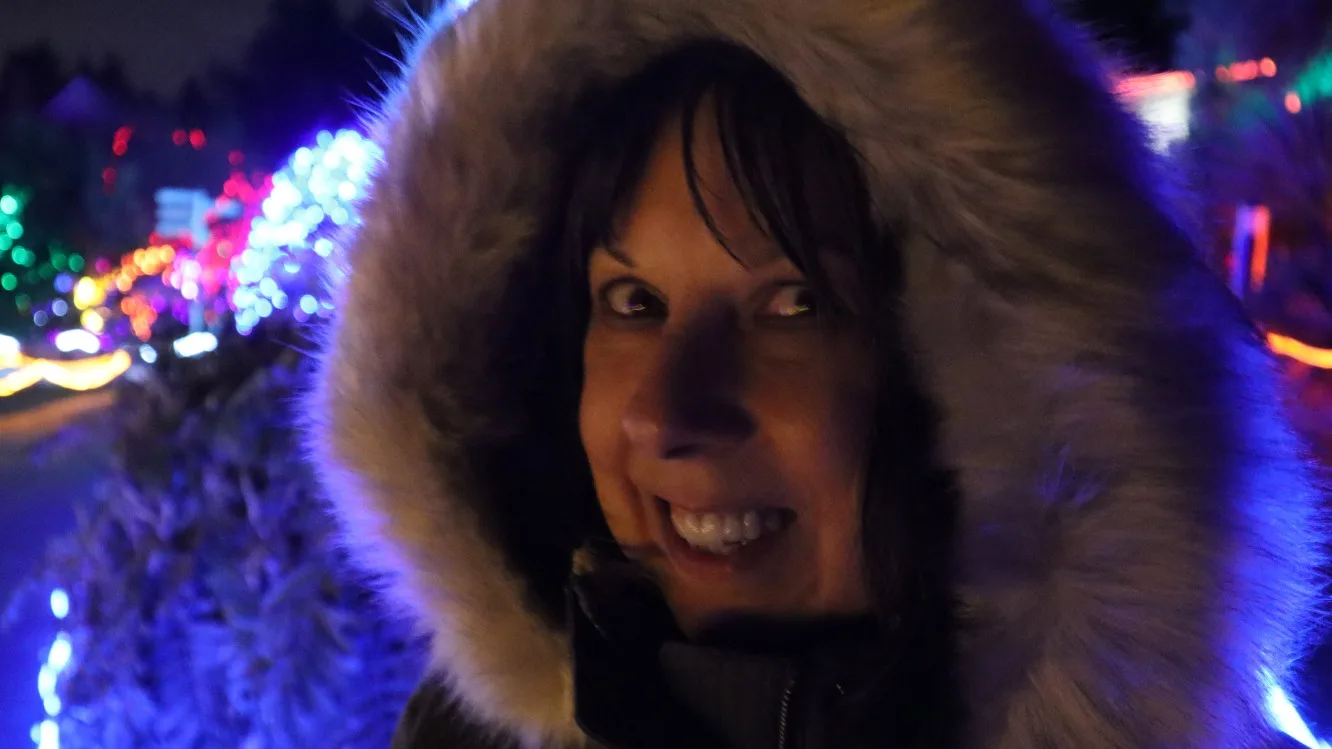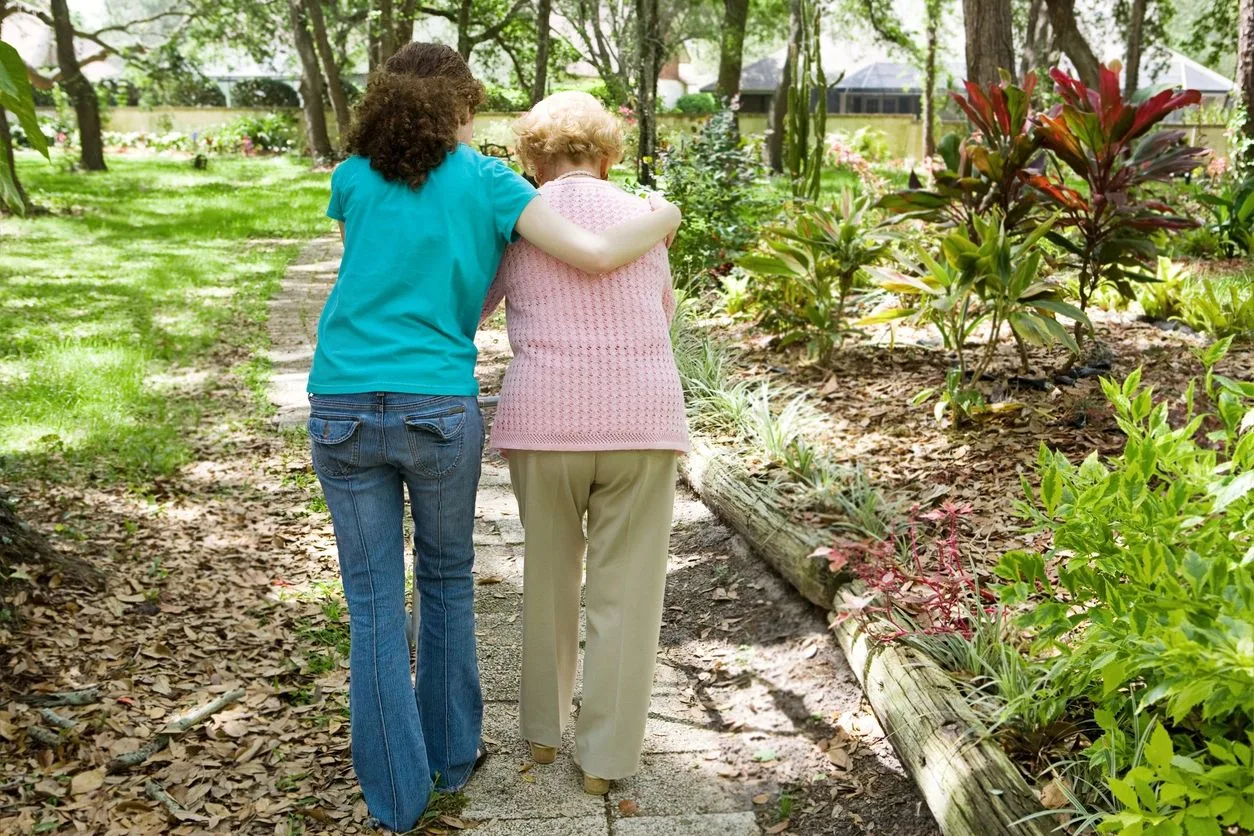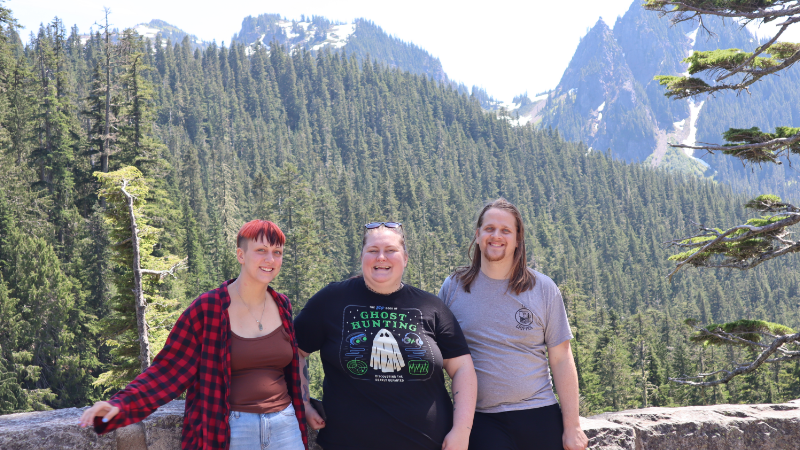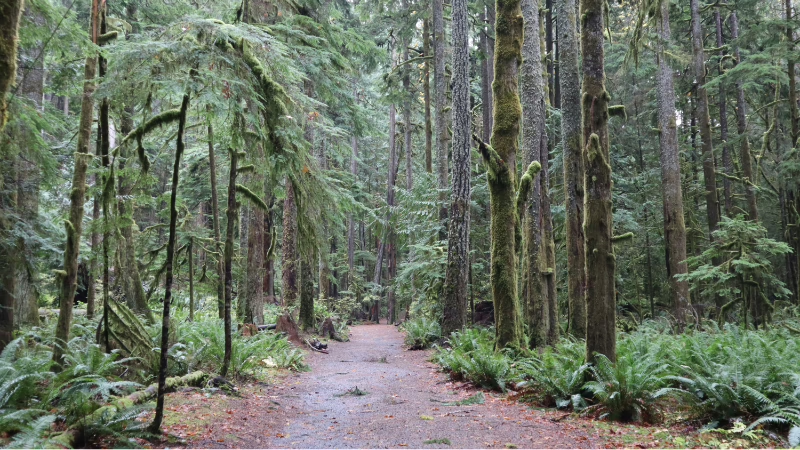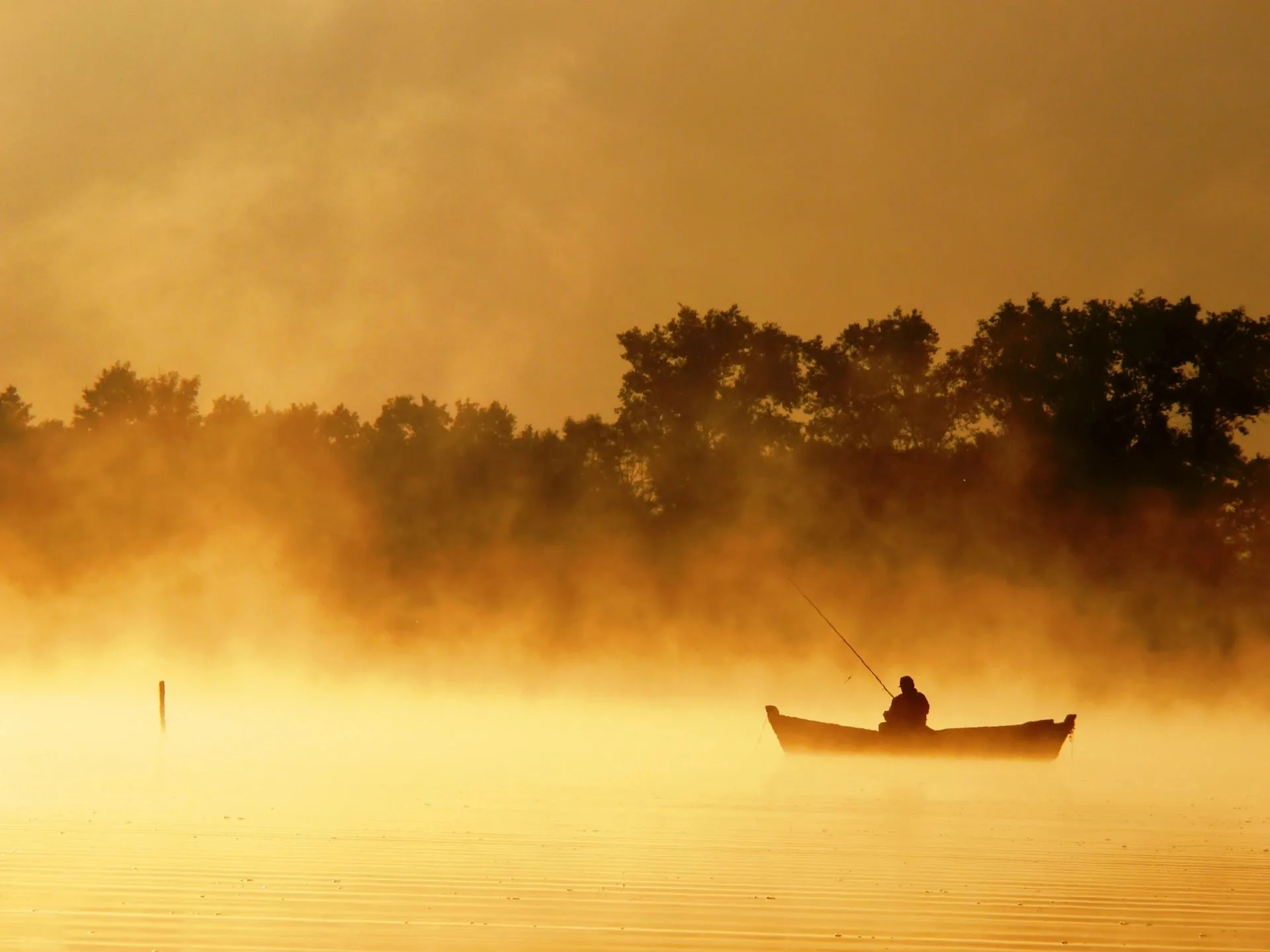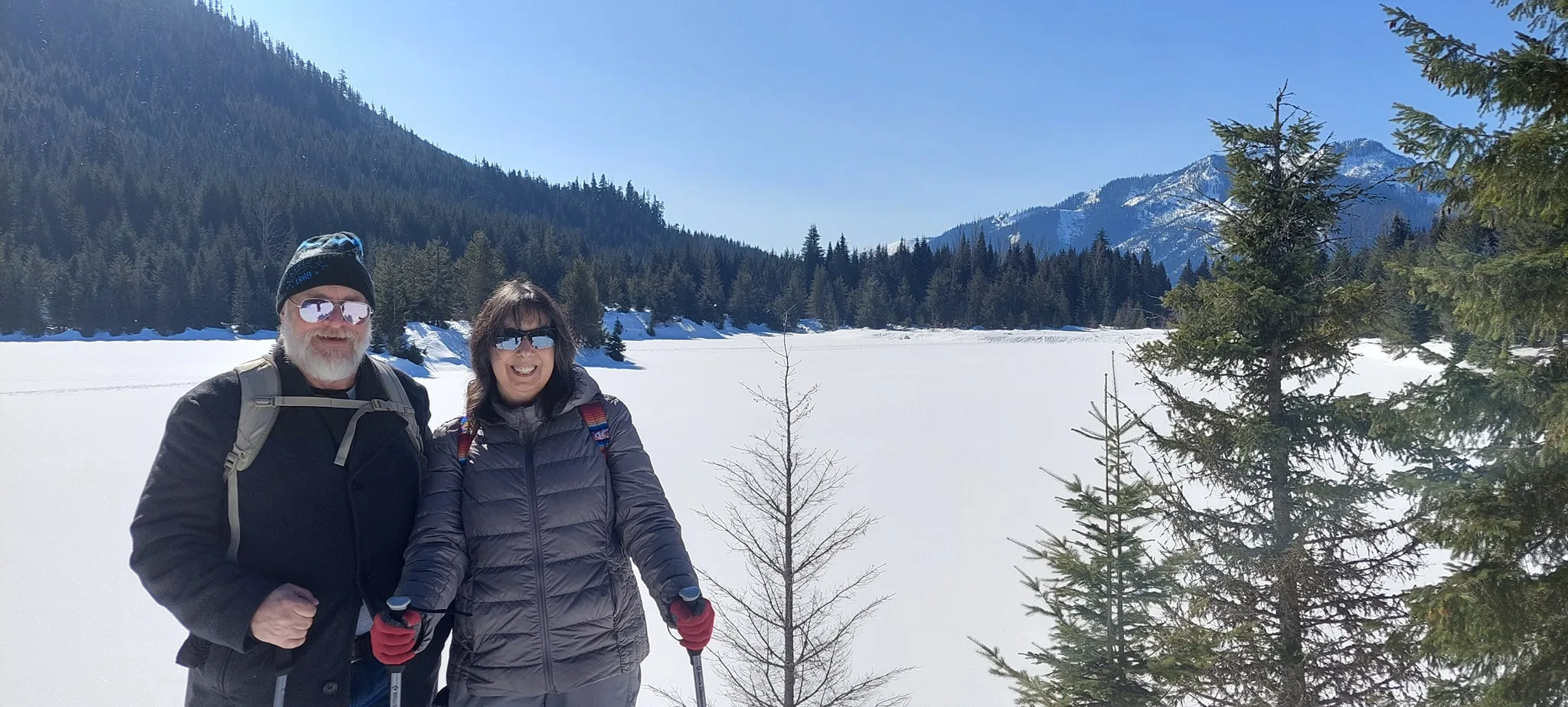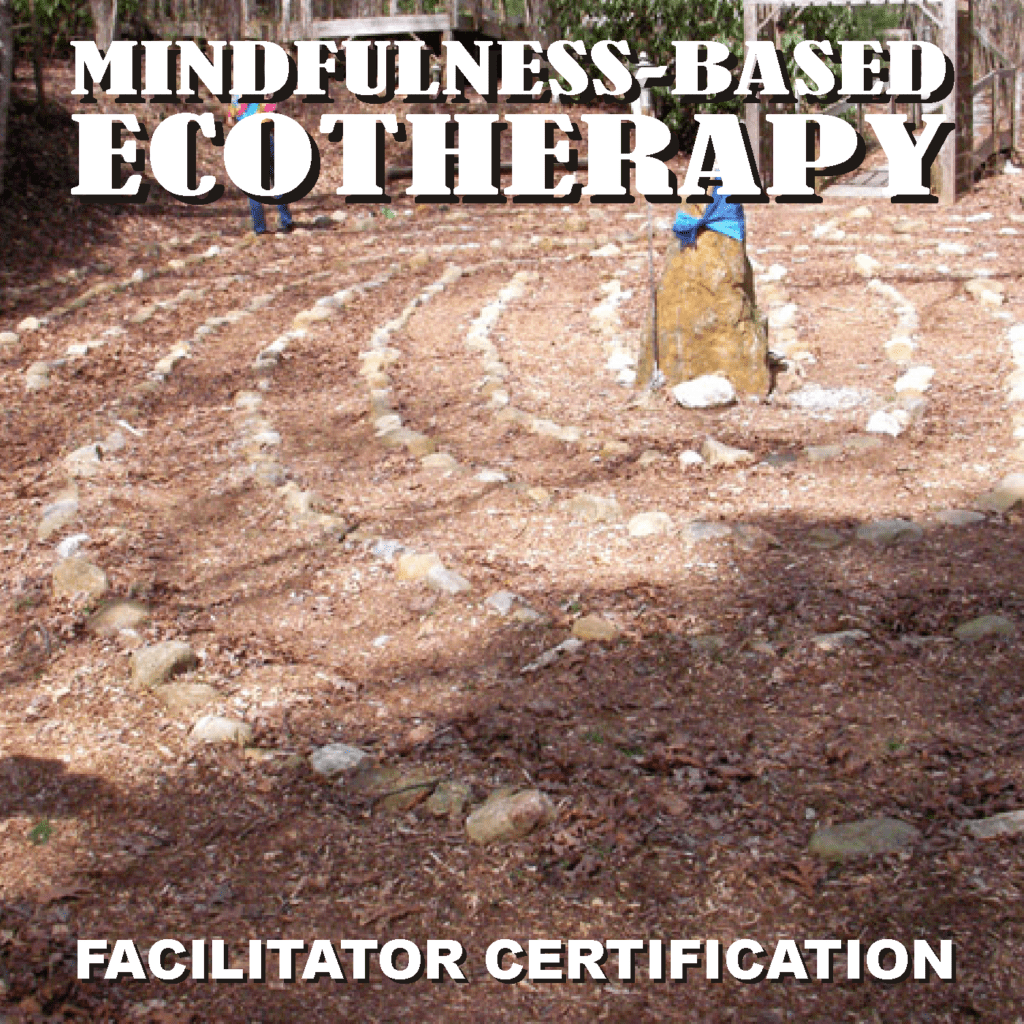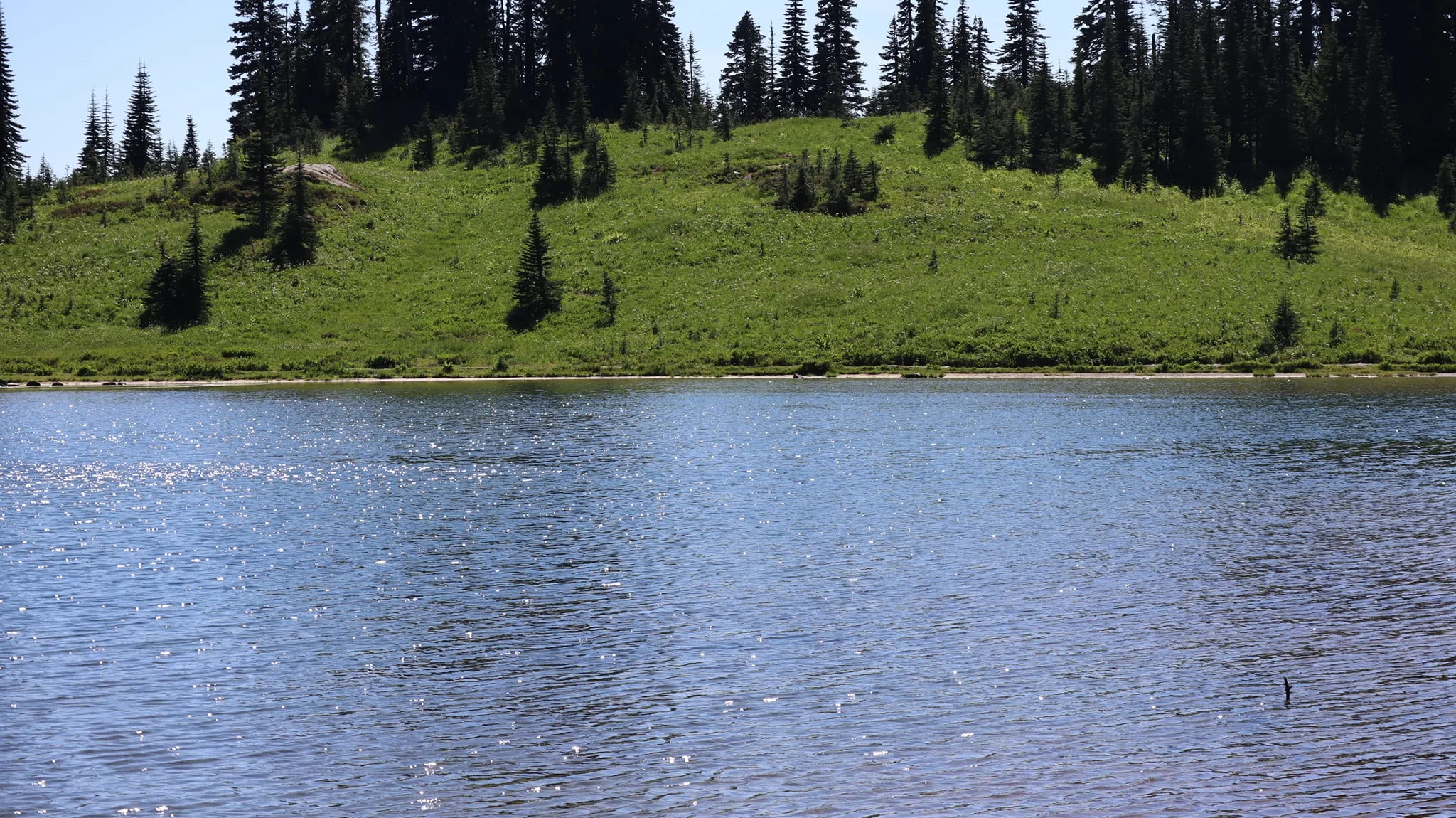
The most basic mindfulness technique involves simply paying attention to the moment. One way to do this is to focus only on your breathing, without thinking about anything. If a thought comes to mind, simply note it and let it go, without judging yourself or the thought. It’s perfectly natural that thoughts will try to surface, because we are taught to be thinking creatures. However, as you practice with mindful awareness, it will get easier to let those thoughts go. Don’t get frustrated if it is difficult at first.
One way to achieve this ability to pay attention to the moment is to picture your thoughts as ripples on a pond. As the wind ceases to blow, the pond becomes calmer and calmer until its surface becomes as smooth as glass. In this case the ‘wind’ is the things that drive your thoughts and feelings, and the ‘ripples’ on the pond are your thoughts and feelings themselves. Your goal is not to make the pond go away. Your goal is to allow the surface of the pond to become calm.
Suppose I tell you that for the next ten seconds, you can think of anything you wish, except for Panda bears. What’s the first thing you’re going to think of? Likewise, if I tell you, “Try not to think for the next ten minutes,” the first thing you’re going to do is to think. Furthermore, if you have a thought, and catch yourself having a thought, and think, “This is hard, I can’t do this,” the thoughts this is hard, and I can’t do this, are more thoughts. So the goal isn’t to try not to think. Trying is doing, and you’re not doing, you’re just being right now.
Some of the features of Mindful Awareness include:
Observing
Think about your morning routine. When you were in the shower this morning, were you actually in the shower, or was your mind racing down the highway to your day-to-day errands? When you were there in the shower, were you feeling the warmth of the water on your skin, smelling the fragrance of the soap, and hearing the sound of the water, or was your mind elsewhere?
When we are preoccupied with thoughts of the past or the future, we are in Thinking Mode. Thinking Mode takes us away from experiencing the world directly with our senses. When we leave Thinking Mode and begin to experience the world instead with our senses, we have entered Sensing Mode. Mindful Awareness teaches us to focus on the world experienced directly by our senses: touch, taste, smell, hearing, and sight.
Experiencing life in Sensing Mode introduces us to a richer world. It’s impossible to be bored or apathetic if you treat each experience as if it is happening to you for the first time.
Describing
This skill of Mindful Awareness involves observing the smallest details of an object, event or activity. Try to approach each daily activity as if you are experiencing it for the first time. Explore as many dimensions of it as you can. For example, you can probably readily identify with the fact that the color of an apple is ‘red,’ or maybe ‘green,’ but have you ever thought about what an apple sounds like? Is there a distinct quality of an apple that would make it identifiable only by sound? By smell? By touch? What would a blind person’s experience of an apple be? When you think of apples, do you have any emotional reaction to them? Do you have any positive memories about apples? What about negative memories? By identifying and labeling these feelings and thoughts about apples, we become more aware of our internal experiences relating to apples.
When we gain experience with this technique, we can apply it to other areas of our lives as well. For example, by looking at your negative thought processes, and identifying and labeling them as such, you are better able to recognize them simply as processes, and not as part of who you are as a person. All of these thoughts and feelings make up our moods. By observing and describing them, we become aware of the primary and secondary emotions at play in our emotionally aggressive states, and in our more emotionally productive states.
Remember when you were a child? Each day the world was new. You approached each day with a sense of childlike wonder. As we get older and learn about things, we learn what to expect by learning how things work. This is usually a good thing. For example, if you learn from experience that dogs may bite, you will probably approach a new dog with caution.
But what if it’s a friendly dog? Will you miss an opportunity to play if you assume a friendly dog will bite you?
Our assumptions can work to protect us, but sometimes our assumptions can work against us as well. If you approach all dogs as dogs that might bite, you’re naturally going to avoid dogs more often. You may even miss an opportunity to play and roll in the grass with a friendly dog because your assumption may be that ‘all dogs bite.’
What about people and relationships? If you’ve been hurt in a relationship, your assumptions might include ‘people bite.’ Such an assumption will color the way you approach new people. If you assume that all people are unfriendly, how is a new person likely to react to you? By learning the skills of observing and describing, we can focus more on the whole person (or dog!) and see that each individual has both positive and negative qualities. We can choose which qualities to focus on based on the assumptions we make in our interactions with them.
Fully Participating
Mindful Awareness allows you to experience every aspect of an activity. We have a tendency, when in thinking mode, to see things and activities as either ‘all bad’ or ‘all good.’ This is not necessarily an accurate depiction of reality.
In Mark Twain’s book, The Adventures of Tom Sawyer, Tom gets his friends to help him whitewash a fence by convincing them that fence painting is one of the most fun and enjoyable activities in the world. There is an element of truth in Tom’s deception. Most activities aren’t inherently ‘good’ or ‘bad.’ We’ve taught ourselves to think of them in such terms, but we can also teach ourselves a different way. Think about an unpleasant activity that you have to engage in on a regular basis, such as washing the dishes or taking out the trash. Can you think of any pleasant aspects of these activities? For example, the last time I hand-washed dishes, I found myself fascinated by the bubbles in the sink. I watched the way the light played across them, generating myriads of rainbows that danced and moved across the surface of the bubbles. I was so entertained by this, that I was done with the dishes before I knew it.
There are enjoyable aspects to every experience, if we train ourselves to look for them. Even if we find ourselves caught in an activity in which we can find no pleasure at all, at least we have the pleasure of thinking about how good we’ll feel when the activity is over!
Being Non-judgmental
Mindful Awareness teaches us the art of acceptance. Emotional reactions to our circumstances are natural, but that doesn’t mean that we have to respond to these emotions by engaging in behaviors that lead to negative consequences. The mindful skill of acceptance teaches us that we can experience these emotions without engaging them.
Acceptance teaches us that we are not our thoughts, and that we are not our emotions. At any given time we can choose which thoughts and emotions we wish to respond to. The essence of mindful mood management is that there are no ‘wrong’ feelings. What may be detrimental is the behavior we engage in after experiencing these emotions. Our goal is to manage the behavior.
When we do so, we are able to manage our moods. This is the difference between feelings and moods: Our moods are a cluster of behaviors we choose to engage in as a response to our feelings and emotions. While we may not be in control of our feelings, we are in control of our moods (or we may learn to be).
If, at any time, we should ‘slip up’ and engage in thoughts and behaviors that lead to negative consequences and negative moods, this does not mean that we have become ‘bad persons.’ This simply means that we are human beings, and as humans we are entitled to make mistakes. Each mistake is an opportunity for growth and learning.
Forgiveness is a skill and an art. The place to start with learning the art of forgiveness is in learning first to forgive ourselves when we make mistakes. When we are able to do so, we will have learned the skill of being non-judgmental with ourselves as well as with others.
Focusing on One Thing at a Time
I love chocolate kisses. There have been times when I have been engaged in other activities while eating kisses. I grab a handful of them and sit down at my computer, eating kisses as I work. On some of those occasions, I’ve eaten the last kiss without realizing that it was the last one. When this has happened in the past, I’ve gotten a little upset that I didn’t realize that I had eaten the last one. The thought that came to mind was, “If I had known that I was eating the last one, I would have enjoyed it more.”
What is it about knowing that I’m on the last kiss that makes eating it more enjoyable? That particular kiss isn’t any different from the rest of the ones in the box. What makes the experience of the last kiss different and more enjoyable is the fact that I have focused all of my attention on enjoying it, because it is the last one.
What if we could learn to make every kiss the ‘last’ one?
By focusing on one thing at a time, we are able to fully enjoy every experience of life. By leaving Doing Mode and entering into Being Mode, we’re able to focus on the pleasures of the present moment. By leaving Thinking Mode and entering into Sensing Mode, we are able to make every kiss the last one by focusing our attention on the experience of enjoying the kiss.
Blues singer and musician Ray Charles once said, “Live every day as if it will be your last, because one of these days, you’re going to be right.”
The way to live every day as if it will be your last, is to focus on the moment, savoring every bit of every experience the world has to offer. The ability to do this is what we call Mindful Awareness.

